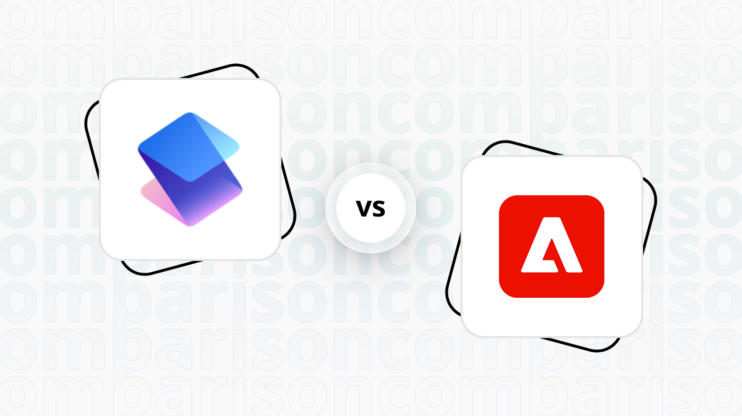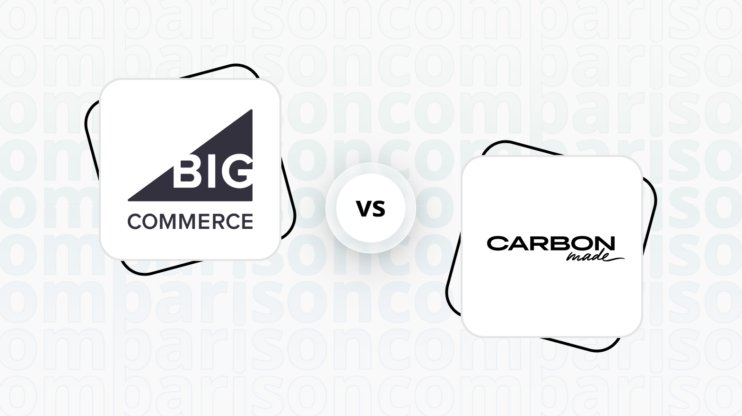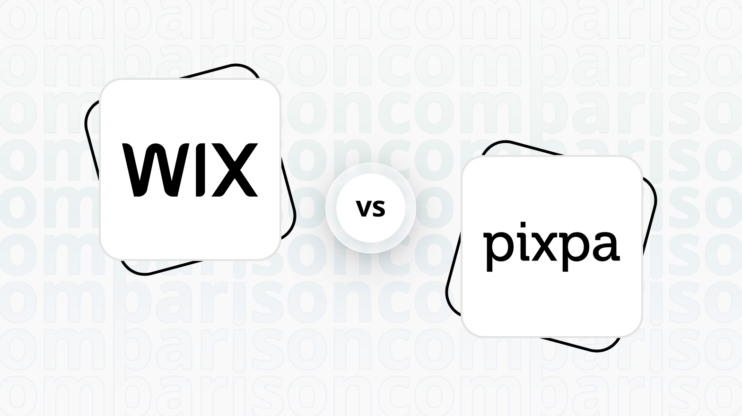Final verdict
Google Sites and Jimdo both offer unique advantages, but they cater to different user needs and preferences.
-
Google Sites (Overall Grade: 5.6/10)
is ideal for users seeking a simple, collaborative website builder with seamless integration with Google services. It excels in ease of use, learning resources, and security, making it a great choice for team projects, personal portfolios, and small business websites. However, it lacks built-in ecommerce features and advanced customization options, which may limit its appeal for more complex website needs. -
Jimdo (Overall Grade: 7.2/10)
stands out for its user-friendly design, diverse templates, and built-in ecommerce capabilities. It is well-suited for individuals, small businesses, and ecommerce entrepreneurs looking for a straightforward platform with robust marketing tools and plugins. While it may not offer the same level of integration and security as Google Sites, Jimdo’s flexibility and comprehensive features make it a strong contender for users seeking a versatile website builder.

|

|
|
|---|---|---|
|
Design functionalities & templates |
4.9 |
7.2 |
|
Ease of use |
8.3 |
8.0 |
|
Ecommerce |
1.8 |
7.0 |
|
Website editors |
7.0 |
7.8 |
|
Product testing options |
6.9 |
6.4 |
|
Price |
8.1 |
7.5 |
|
Hosting quality |
8.2 |
6.7 |
|
Website speed optimization |
3.3 |
7.6 |
|
Plugins/extensions and integrations |
6.4 |
7.4 |
|
Marketing features |
2.6 |
7.2 |
|
Customer support |
7.2 |
6.8 |
|
Website security |
9.3 |
8.3 |
|
AI capabilities |
0 |
6.0 |
|
User management |
7.8 |
5.8 |
Best for ecommerce
 1.8
1.8
 7.0
7.0
Verdict
: Jimdo is the clear winner for ecommerce, offering a range of built-in features that Google Sites lacks.
-
Google Sites
: Google Sites is not designed for ecommerce. It lacks built-in ecommerce features and relies heavily on third-party integrations for any ecommerce functionality. This makes it less suitable for businesses looking to sell products online. When comparing Google Sites vs Jimdo, Google Sites falls short in providing a comprehensive ecommerce solution. -
Jimdo
: Jimdo offers a variety of built-in ecommerce features, making it a more suitable choice for online businesses. It includes product details and variations, inventory tracking, no transaction fees, discount codes, and email marketing. This makes Jimdo a robust platform for those looking to manage and grow their online store.
Best for informational & business websites
 7.2
7.2
 7.4
7.4
Verdict
: When it comes to creating informational and business websites, Jimdo slightly edges out Google Sites with a score of 7.4 compared to Google Sites’ 7.2. Jimdo’s diverse range of templates and user-friendly editor make it a strong choice for those looking to build visually appealing and functional websites with ease.
-
Google Sites
: Google Sites is a solid choice for creating basic informational websites, especially for users who are already integrated into the Google ecosystem. Its drag-and-drop interface and seamless integration with other Google services make it easy to use, even for beginners. However, its design functionalities and customization options are somewhat limited compared to other platforms. -
Jimdo
: Jimdo offers a more versatile and user-friendly experience for building informational and business websites. With a variety of templates and an intuitive editor, Jimdo caters to both beginners and more advanced users. Its focus on ease of use and design flexibility makes it a preferred choice for those looking to create professional-looking websites without extensive technical knowledge.
Detailed comparison
Design functionalities & templates
Design FunctionalitiesRepresents how well each platform allows for creative design and customization of websites.Score Components:
- Template Variety (30%): Range and quality of design templates.
- Customization (30%): Flexibility and options for design alterations.
- User Interface (20%): Ease and intuitiveness of the design process.
- Responsiveness (10%): Adaptability to different devices and screen sizes.
- Innovation (10%): Unique design features and tools.
 4.9
4.9
 7.2
7.2
🏆
Winner: Jimdo.
If you’re looking for a platform that offers more creative control and a wide array of design features, Jimdo is the preferred choice.
Google Sites offers a limited number of templates suitable for various purposes, from personal blogs to business websites, with both free and premium options available. These templates are designed for user engagement, simplicity, and functionality, allowing for customization to meet specific needs. However, compared to other website builders like 10Web or Squarespace, Google Sites might offer less variety in templates and design customization options.
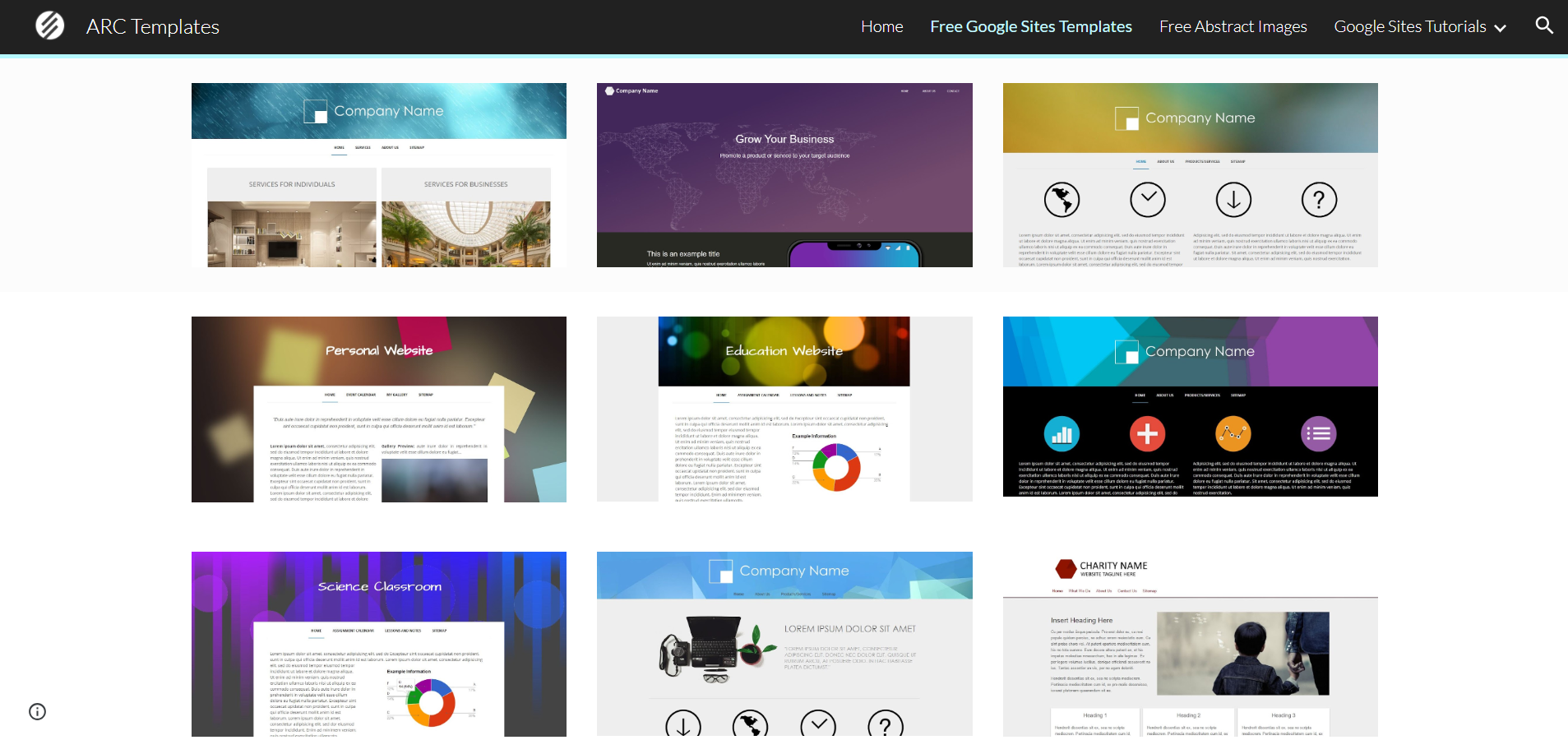

Compared to Google Sites, Jimdo offers a diverse range of templates suitable for various industries and user preferences, with options to preview and select templates easily. The platform allows flexibility in changing templates for existing websites and also provides a “Blank Template” for custom designs, catering to both beginners and advanced users.


Get a head start on website creation with AI
Create a custom website tailored to your business needs 10X faster with 10Web AI Website Builder!
Ease of use
Ease of useReflects the platform’s overall user-friendliness.Score
Components:
- Learning curve (40%): Quickness and ease of getting started.
- Interface design (30%): Simplicity and intuitiveness of layout.
- User guidance (20%): Quality of tutorials and support.
- Flexibility (10%): Adaptability to various user skills.
 8.3
8.3
 8.0
8.0
🏆 Winner: Google Sites
. Scoring 8.3, Google Sites offers a user-friendly interface and seamless integration with other Google services, making it a straightforward tool for creating basic websites. Jimdo, with a score of 8.0, is also user-friendly, especially for beginners, but may not be ideal for more complex websites or those requiring advanced customization.
Learning Resources
🏆 Winner: Google Sites
. Google Sites offers a wide array of learning resources, from practical guides for educators to comprehensive digital skill development programs for the wider public. Jimdo also provides user-friendly learning resources and tools, but Google Sites’ resources are more extensive and versatile.
For ecommerce
EcommerceMeasures the platform’s effectiveness in supporting online business activities.Score Components:
- Ecommerce themes and templates (20%): Variety and design of templates.
- Product management (25%): Ease of managing and organizing products.
- Payment options (25%): Variety and convenience of payment methods.
- Ecommerce features (20%): Features for managing an ecommerce store.
- Integration (10%): Compatibility with external e-commerce tools and services.
 1.8
1.8
 7.0
7.0
When it comes to ecommerce, Jimdo clearly outperforms Google Sites. Google Sites lacks built-in ecommerce features, relying on third-party integrations for any ecommerce functionality. In contrast, Jimdo offers a range of built-in ecommerce features, making it a more suitable choice for online businesses.

|

|
|
|---|---|---|
|
Ecommerce themes and templates |
0.0 |
6.5 |
|
Product page customization |
0.0 |
6.8 |
|
Payment processing and commissions |
1.0 |
7.5 |
|
POS capabilities |
0.0 |
5.0 |
|
Payment gateways |
2.0 |
7.0 |
|
Product numbers |
0.0 |
6.0 |
|
Additional ecommerce features |
0.5 |
6.5 |
Google Sites ecommerce features:
Google Sites does not have built-in ecommerce features. However, you can integrate ecommerce functionalities into a Google Sites website by embedding third-party tools or widgets, linking to an external ecommerce platform, or using buttons that link to payment processors.
Jimdo ecommerce features:
- Product details and variations
- Inventory tracking
- No transaction fees
- Discount codes and promotions
- Email marketing

Ecommerce themes & templates
Google Sites does not offer ecommerce templates. On the other hand, Jimdo’s ecommerce templates offer a diverse range of pre-designed themes, ensuring a mobile-friendly and smooth shopping experience. The drag-and-drop interface allows for easy customization of colors, fonts, and layouts, while templates focus on showcasing products with dedicated sections for images, descriptions, and clear calls to action.
Product page customization
Google Sites lacks any product page customization features, as the products can be listed with embedding third-party platforms, all the customization can be done within the mentioned platforms. In contrast, customizing a product page on Jimdo involves using its user-friendly interface to personalize various elements. You can edit text, add images, adjust layouts, and modify design elements like colors and fonts to showcase your products effectively.
Payment processing
You can integrate payment gateways into Google Sites using external tools or links, not through native features. This can be done by embedding HTML code for payment buttons from services like PayPal, Square, or Stripe, or by linking to an external checkout page. Third-party eCommerce widgets also offer a way to add payment functionalities. However, Google Sites doesn’t offer the comprehensive eCommerce capabilities that dedicated platforms provide.
On the other hand, Jimdo facilitates payment processing through various popular gateways like PayPal, Stripe, Mollie, and more, depending on your location and plan. While Jimdo doesn’t impose transaction fees, individual payment gateways may have their own charges, typically ranging from 2% to 3% of the transaction amount plus a fixed fee. Additionally, certain Jimdo plans may offer free transactions per month, providing flexibility for users based on their plan details.
Website Editors
Website EditorsEvaluates the platforms’ website building and editing capabilities.Score Components:
- Customization tools (40%): Range and power of editing features.
- Editor usability (30%): User experience within the editor.
- Design flexibility (20%): Freedom in layout and design changes.
- Update and maintenance ease (10%): Simplicity of updating and maintaining the site.
 7.0
7.0
 7.8
7.8
🏆
Winner: Jimdo
. Jimdo, with a score of 7.8, offers a user-friendly editor designed to accommodate both novice and experienced users through its two main modes: Jimdo Dolphin and Jimdo Creator. Dolphin, an AI-driven tool, is ideal for beginners and creates websites based on user responses to a series of questions, streamlining the web design process. On the other hand, Jimdo Creator provides a more traditional website building experience with greater customization options, including a drag-and-drop editor and HTML widgets, catering to users seeking more control over their site’s design.
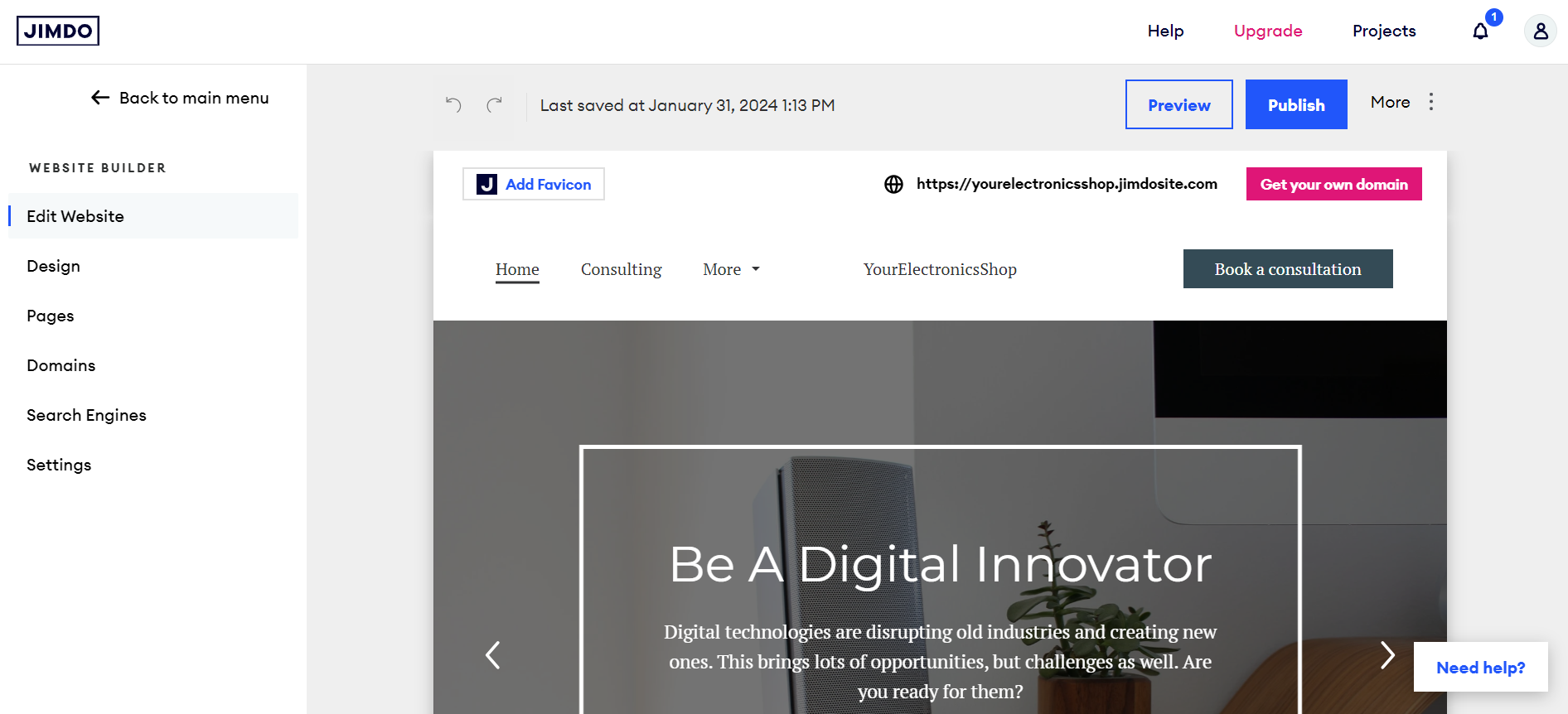
Google Sites’ editor, scoring 7.0, offers a user-friendly website builder editor that allows users to create and design websites without needing coding knowledge. With its drag-and-drop interface, users can easily add, customize, and arrange elements such as text, images, and videos on their web pages. It also provides a variety of templates and design options to help users get started quickly and ensure their site looks professional. Additionally, Google Sites integrates seamlessly with other Google services, enabling the incorporation of Google Docs, Sheets, Slides, and Maps directly into the website.
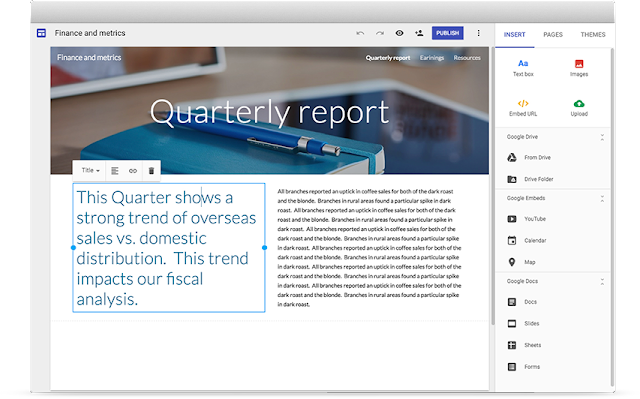
Mobile editor/app
 0
0
 8.0
8.0
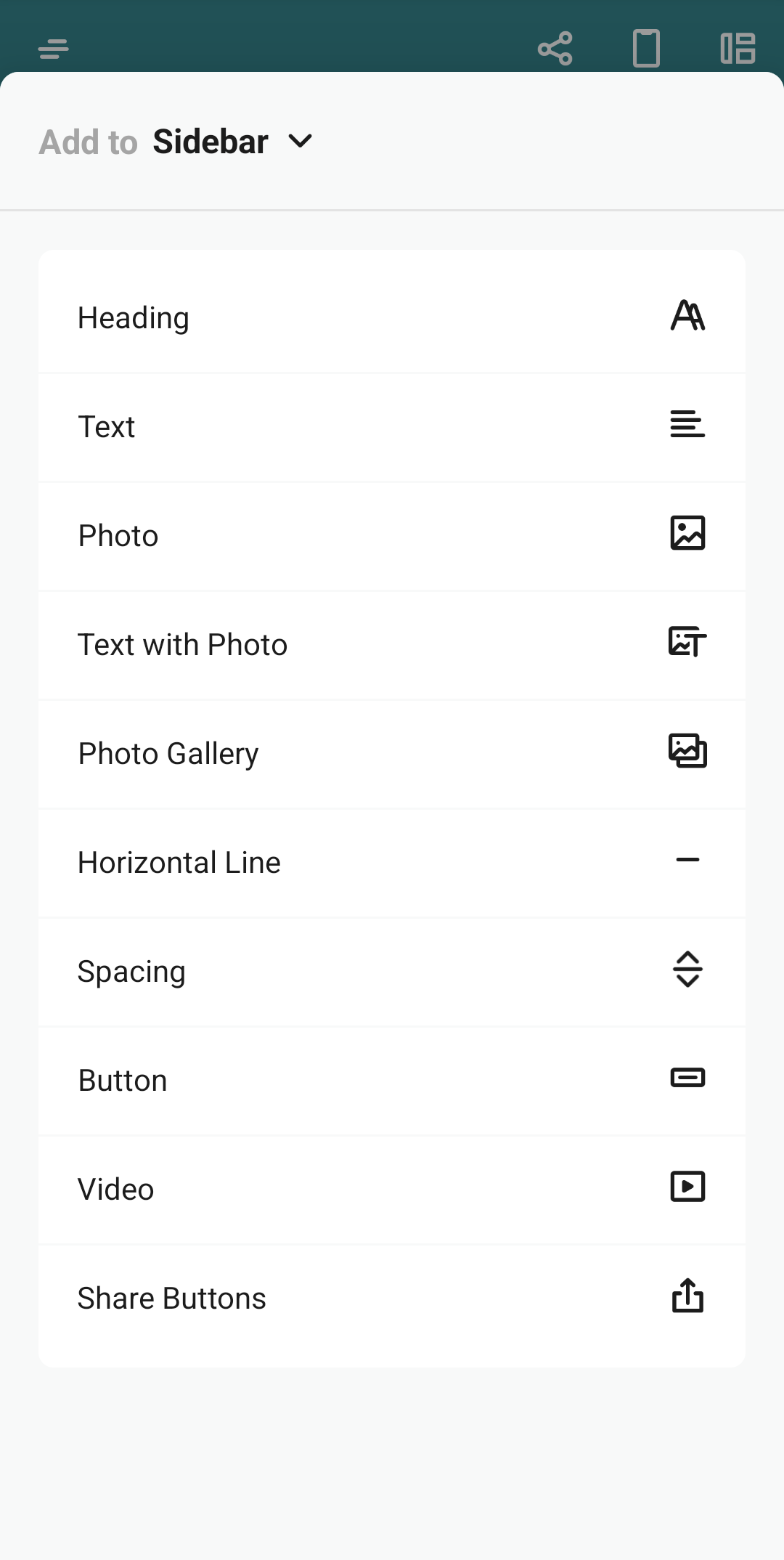
🏆
Winner: Jimdo
. Google Sites does not offer a mobile editor app, which can limit the flexibility and convenience for users who want to manage their website on the go. On the other hand, Jimdo provides a mobile editor app that allows users to create and manage their websites directly from their smartphones or tablets.
This app provides a convenient way to edit and update your site on the go, including adding or modifying content, adjusting design elements, and managing your online store. Therefore, Jimdo is the clear winner in this category due to its mobile editing capabilities.
Product testing options
Product Testing OptionsAssesses the options for trying out platform features before commitment.Score Components:
- Trial quality (40%): Extent and usefulness of the trial or free version.
- Feature accessibility (30%): How many features are available to test.
- Trial duration (20%): Length of the trial period.
- Ease of transition (10%): Smoothness of moving from trial to paid plans.
 6.9
6.9
 6.4
6.4
Overall Result
:
Google Sites wins
. Google Sites scores 6.9, slightly higher than Jimdo’s 6.4. Google Sites offers a free version and a 14-day free trial with the possibility to test some premium features. On the other hand, Jimdo also provides a free version and a 14-day money-back guarantee for all paid plans, allowing users to test advanced features risk-free.

|

|
|
|---|---|---|
|
Free Plan |
Yes | Yes |
|
Trial Duration |
14 days | No (14-day money-back guarantee) |
|
Testing Premium Features |
Some features during free trial | Basic features with free plan, advanced features with paid plans |
|
Money Back Guarantee |
No |
Yes (14-day money-back guarantee for all paid plans) |
Price
PriceLooks at the cost-effectiveness and value for money of each platform.Score Components:
- Plan value (40%): What each pricing tier offers.
- Transparency and clarity (30%): Clearness of pricing structures.
- Flexibility of plans (20%): Range of options to suit different budgets.
- Hidden costs (10%): Additional expenses not included in the plan.
 8.1
8.1
 7.5
7.5
Google Sites and Jimdo offer different pricing structures, with Google Sites pricing per user and Jimdo offering a range of plans for different needs.

|

|
|
|---|---|---|
|
Free |
No offering at this amount. |
Play ($0/month): Basic, entry-level plan offering limited features, ideal for testing Jimdo’s capabilities. Includes 500MB storage and up to 5 website pages. Limited ecommerce functionality. |
|
$0-$10 |
Business Starter ($7.20/month): This plan includes basic features suitable for individuals or small businesses, offering professional email through Gmail, 30GB of storage per user, and video meetings for up to 100 participants. It allows to manage 1 website and there is no limitation on number of pages. Value for price: 6.0 |
Start ($9/month): Aimed at small projects or businesses just starting out. Provides 5GB of storage and up to 10 website pages, along with SEO tools for online visibility. Not directly focused on ecommerce. Value for price: 6.0 |
|
$10-$17 |
Business Standard ($14.40/month): Suitable for growing businesses, this plan provides 2 TB of storage per user, video meeting capacity for up to 150 participants with recording features, and access to smart booking pages and shared drives. It allows to manage 1 website and there is no limitation on number of pages. Value for price: 7.5 |
Grow ($15/month): Targets growing businesses needing more space and features. Offers more flexibility but still lacks dedicated ecommerce capabilities compared to the Business plan. Provides 20GB bandwidth with up to 50 website pages. Value for price: 7.0 Basic ($15/month): Up to five forwarding email addresses, up to 10 website pages, convenient payment methods. Value for price: 6.5 |
|
$15-$25 |
Business Plus ($21.60/month): Designed for larger businesses needing more robust capabilities, offering 5 TB of storage per user, advanced security options, and video meetings for up to 500 participants. It allows to manage 1 website and there is no limitation on number of pages. Value for price: 8.5 |
Business ($19/month): Designed for small to medium-sized online stores, offering ecommerce features without transaction fees. Includes selling on Facebook and Instagram, and various payment options. And up to 50 website pages. Value for price: 8.0 |
|
$30+ |
No offering at this amount. |
VIP ($39/month): Provides comprehensive features for large or expanding online stores, including unlimited storage and priority support and unlimited website pages. Includes professional design review and no transaction fees. Value for Price: 9.0 Unlimited ($39/month): Offers unlimited bandwidth and storage, up to 20 forwarding email addresses and unlimited website pages. Includes priority support and professional design reviews. Value for Price: 9.5 |
location. As a result in rare cases the prices displayed here can differ from the ones you see on their
websites.
Hosting quality
Hosting
qualityExamines the reliability and performance of the hosting solutions.Score Components:
- Uptime (40%): Consistency and reliability of website availability.
- Speed (30%): Loading times and performance.
- Bandwidth and storage (20%): Sufficiency of resources provided.
- Data centers (10%): Quality and distribution of hosting infrastructure.
 8.2
8.2
 6.7
6.7
🏆
Winner: Google Sites
Google Sites offers cloud-based managed hosting with a 99.9% uptime guarantee and a vast network of 21 data centers worldwide. Jimdo provides shared, cloud, and managed hosting with a lower uptime of 99.5% and does not disclose the exact locations of its data centers. Google Sites’ superior uptime and transparency about its data centers give it the edge in this category.

|

|
|
|---|---|---|
|
Do they offer hosting? |
Yes, basic storage with 100MB free per site, can be increased by upgrading to Google Workspace |
Yes, included in all plans, from 500MB storage and 2GB bandwidth on free plan, up to unlimited storage and bandwidth on highest plan |
|
Data Centers: |
Google operates a total of 21 data centers across the globe: 2 in Asia, 5 in Europe, 13 in US and 1 in South America |
Jimdo doesn’t publicly disclose the exact locations of its data centers, they utilize a distributed network of highly secure and reliable facilities spread across multiple regions |
|
Type of hosting: |
Cloud based managed hosting |
Shared Hosting, Cloud Hosting, Managed Hosting |
|
Uptime: |
99.9% |
99.5% |
|
Uptime Guarantee: |
Yes, 99.9% |
No |
Website Speed Optimization
Website Speed OptimizationEvaluates optimization of website loading timesScore Components:
- PageSpeed Score (30%): Google’s score indicating performance optimization.
- Loading Time (30%): The average time until a website is fully interactive.
- Mobile Optimization (15%): Optimization effectiveness for mobile devices.
- Resource Optimization (15%): Optimizing images, scripts, and other heavy resources.
- CDN Usage (10%): Use of CDN to enhance speed across geolocations.
 3.3
3.3
 7.6
7.6
🏆 Winner: Jimdo
Both Google Sites and Jimdo prioritize website performance and page speed, but Jimdo has a higher score in website speed optimization.

|

|
|
|---|---|---|
|
Focus |
Automated Optimization, CDN, Mobile Optimization, Browser Caching, Code Minification, Use of AMP |
Content Optimization, CDN, Image optimization, Caching, Mobile Responsive design |
|
Performance Tools |
Google Lighthouse, PageSpeed Insights |
Google PageSpeed Insights Integration |
|
Key Strategies |
Automated Optimization, CDN, Mobile Optimization, Browser Caching, Code Minification, Use of AMP |
Content Optimization, CDN, Image optimization, Caching, Mobile Responsive design |
|
Load Times |
Google does not disclose statistics about website Page Speed scores, or load times |
Varies widely, dependent on optimization |
|
Page Speed Scores Range |
Google does not disclose statistics about website Page Speed scores, or load times |
Scores vary; influenced by plugins, images |
|
Core Web Vitals Improvement |
Emphasis on LCP, FID, CLS improvements |
Optimizing LCP, Enhancing FID, Improving CLS |
Jimdo’s approach to enhancing site speed includes content optimization, use of a content distribution network (CDN), image optimization, caching, and mobile responsive design. These strategies have resulted in a wide range of load times and PageSpeed scores, influenced by plugins and images. Jimdo also focuses on improving Core Web Vitals (CWV) by optimizing the Largest Contentful Paint (LCP), enhancing the First Input Delay (FID), and improving the Cumulative Layout Shift (CLS).
Google Sites, on the other hand, uses automated optimization, a CDN, mobile optimization, browser caching, code minification, and Accelerated Mobile Pages (AMP) to improve website speed. However, Google does not disclose specific statistics about website PageSpeed scores or load times. Like Jimdo, Google Sites also emphasizes improvements in LCP, FID, and CLS.
Get a head start on website creation with AI
Create a custom website tailored to your business needs 10X faster with 10Web AI Website Builder!
Plugins and integrations
Plugins and integrationsMeasures the range and effectiveness of additional plugins and integrations.Score Components:
- Variety of options (40%): Range of available add-ons.
- Integration smoothness (30%): Ease of integrating plugins into the site.
- Quality of plugins (20%): Functionality and reliability of the options.
- Custom integration capabilities (10%): Support for custom or third-party integrations.
 6.4
6.4
 7.4
7.4
🏆 Winner: Jimdo.
With a score of 7.4, Jimdo leads in this category. It offers a range of plugins and extensions, with POWr and Elfsight being major providers. These tools enhance website functionality and cater to diverse business and marketing needs. Google Sites, scoring 6.4, also offers a wide array of plugins and extensions to enhance website functionality. However, Jimdo’s offerings seem to be more diverse and user-friendly, giving it the edge in this category.

Marketing Features
Design FunctionalitiesRepresents how well each platform allows for creative design and customization of websites.Score Components:
- Template Variety (30%): Range and quality of design templates.
- Customization (30%): Flexibility and options for design alterations.
- User Interface (20%): Ease and intuitiveness of the design process.
- Responsiveness (10%): Adaptability to different devices and screen sizes.
- Innovation (10%): Unique design features and tools.
 2.6
2.6
 7.2
7.2
🏆
Overall Winner: Jimdo
. Jimdo stands out for its comprehensive marketing tools, especially in SEO, email marketing, blogging, and social media integration. Google Sites, while offering basic SEO and analytics, lacks in email marketing, blogging, and ads and promotions.

|

|
|
|---|---|---|
|
SEO Tools |
Basic SEO settings |
Comprehensive SEO tools |
|
Email Marketing |
No |
Yes |
|
Blogging |
No |
Yes |
|
Social Media Integration |
Basic integration with social media links and widgets |
Advanced integration with various social media platforms |
|
Analytics and Reporting |
Google Analytics integration |
Integrated analytics for monitoring website traffic |
|
Ads and Promotions |
No |
Tools for promotions and ad management |
Customer Support
Customer supportEvaluates the quality and availability of support options.Score Components:
- Response time (40%): Speed of support responses.
- Support quality (30%): Effectiveness and helpfulness of the support.
- Availability (20%): Range of support channels (phone, chat, email).
- Resource richness (10%): Quality of self-help and educational materials.
 7.2
7.2
 6.8
6.8
🏆 Winner: Google Sites
. Comparing Google Sites vs Jimdo, Google Sites takes the lead in this category with its comprehensive support options. Google Sites offers a range of self-service resources, including a Help Center and community forums. For Google Workspace customers, direct support is available through phone, email, and live chat, with 24/7 support for critical issues depending on the subscription tier. This makes it a robust option for users needing reliable and accessible support.
Jimdo, on the other hand, provides various support channels such as email, a call center, and social media support. However, it lacks live chat support, which can be a drawback for users needing immediate assistance. Jimdo’s support options may vary based on the user’s plan, and while it offers a knowledge base and specific request forms, it doesn’t match the comprehensive support system provided by Google Sites.
Security
SecurityLooks at the platforms’ security measures and data protection.Score Components:
- Data protection (40%): Safeguards for user and customer data.
- SSL and encryption (30%): Implementation of secure connections.
- Compliance (20%): Adherence to industry security standards.
- Regular updates (10%): Frequency of security updates and patches.
 9.3
9.3
 8.3
8.3
🏆
Winner: Google Sites
. Google Sites, with a security score of 9.3, offers robust security measures including SSL encryption, two-factor authentication, and automatic malware scanning. It also benefits from Google’s regular security updates and compliance with international data protection standards. Google’s infrastructure offers DDoS protection and data redundancy, safeguarding against data loss and maintaining site accessibility under heavy traffic.
Jimdo, with a security score of 8.3, also prioritizes website and user security with measures such as a strong firewall, DDoS protection, and HTTPS encryption for all traffic. However, it falls slightly short compared to Google Sites in terms of overall security measures and score.
AI Capabilities
AI capabilitiesMeasures the effectiveness of AI-driven features and tools.Score Components:
- Automation efficiency (40%): Impact of AI on streamlining processes.
- Personalization (30%): AI-driven customization for users or customers.
- AI-Assisted design (20%): Role of AI in website design and functionality.
- Data analysis (10%): Use of AI in interpreting user data and analytics.
 0
0
 6.0
6.0

|

|
|
|---|---|---|
|
Personalized Design |
|
Jimdo’s AI offers mobile-friendly designs |
|
SEO Optimization |
|
|
|
Customer Behavior Analysis |
|
|
|
Sales Predictions |
|
|
|
Inventory Management |
|
|
|
Content Generation |
|
|
🏆 Winner: Jimdo
. Jimdo, with a score of 6.0, utilizes AI to enhance the website creation process. Its AI features focus on providing mobile-friendly designs, access to copyright-free images, ecommerce capabilities with no commission fees, a legal text generator, social media integrations, personalized domains, and custom logo creation. However, it has limited text editing options, a somewhat limited stock image library, and basic ecommerce features that may not suit complex online selling needs.

Google Sites does not have any AI capabilities.
User Management
User ManagementAssesses the platforms’ capabilities in managing user roles, permissions, and accessibility.Score Components:
- Role Customization (40%): Flexibility in creating and defining user roles and
permissions. - Ease of Management (30%): User interface and tools for managing users.
- Access Control (20%): Effectiveness of access control measures for different user
levels. - Scalability (10%): Ability to manage a growing number of users efficiently.
 7.8
7.8
 5.8
5.8
🏆 Winner: Google Sites
. Google Sites and Jimdo offer different approaches to user management.
- Google Sites allows multiple users to collaborate with different roles, including Owners, who have full control, and Editors, who can modify content but not site settings. There’s no strict limit on the number of users who can edit a site, allowing flexibility in management and development. Viewers can only see the site, with no editing permissions. This structure supports collaborative website building with varied levels of access and control for different users.
- Jimdo’s Free, Start, and Basic Shop Plans allow website management by a single owner. The Grow Shop Plan permits two editors, including the account owner and one collaborator. The Business Plan extends collaboration to five editors, consisting of the account owner and four collaborators. The Unlimited Plan provides unlimited editors, fostering a collaborative team environment. The VIP Plan, designed for online stores, does not specify a limit on editors for websites.
Unfortunately, there are no detailed user roles and access levels tables available for both Google Sites and Jimdo.
Additional Features

|

|
|
|---|---|---|
|
SSL Certificate |
|
|
|
Custom Domain |
|
|
|
Free Custom Domain Included |
|
|
|
International Domains |
|
|
|
Mobile Responsive |
|
|
|
Page Speed |
|
|
|
Website Builder Mobile App |
|
|
|
Convert a Website To An App |
|
|
|
Website Analytics |
|
|
|
Multilingual Sites |
|
|
|
Multiple Users |
|
|
User Feedback
Users consistently praise Google Workspace, particularly Google Sites, for its seamless integration, ease of use, and collaborative features, making it a go-to solution for various professional and educational needs. The platform’s simplicity and user-friendly interface are lauded, enabling effortless website creation and sharing of information within organizations. While some users desire more customization options and additional features, overall, Google Workspace remains highly valued for its versatility and streamlined workflow facilitation.
Jimdo, a website builder platform, receives mixed reviews from users. Positive feedback highlights its ease of use, no-code editor, and quick website development for basic sites. However, criticisms include outdated design, limited templates, and concerns about pricing transparency. Some users appreciate it for simple projects, while others find it lacking for more complex websites. Common issues include restricted SEO in the free tier, support limitations, and late responses. The overall impression suggests Jimdo may suit beginners but could be less ideal for those seeking advanced features or modern designs.
The making of this blog
We followed a clear, step-by-step process to write and research this article.
FAQ
Which platform is better for ecommerce, Google Sites or Jimdo?
Can I use Google Sites for a collaborative project?
How do Google Sites and Jimdo compare in terms of design flexibility?
Which platform offers better customer support, Google Sites or Jimdo?
Are there any AI capabilities in Google Sites or Jimdo?
Which platform is more secure, Google Sites or Jimdo?
How do the platforms compare in terms of website speed optimization?
Which platform is easier to use for beginners?











